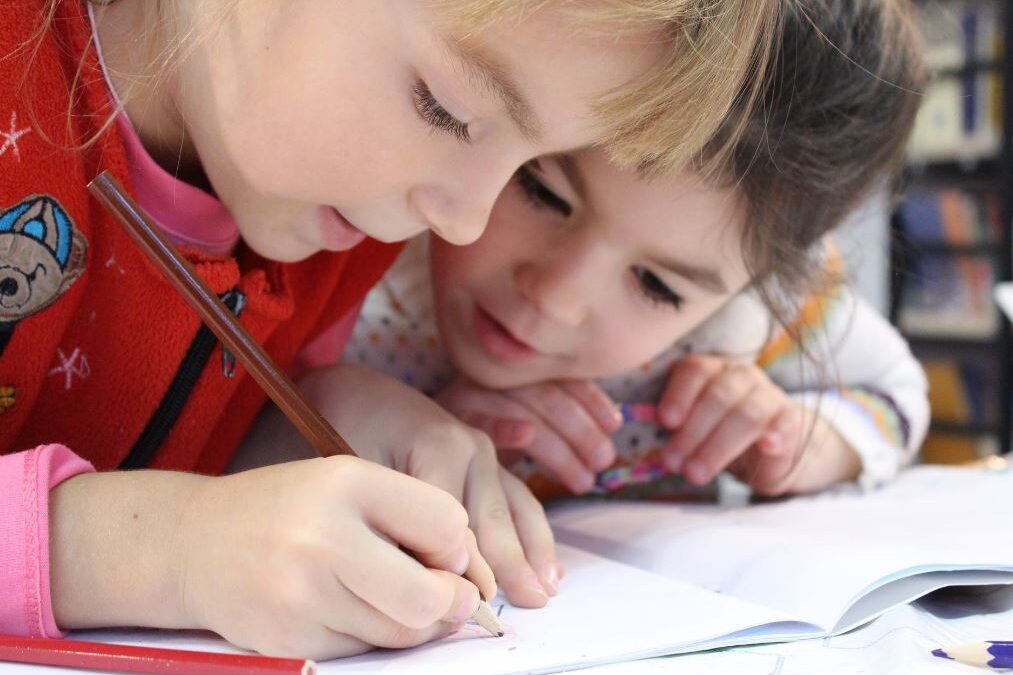
Image: https://www.pexels.com/photo/girls-on-desk-looking-at-notebook-159823/
The Covid-19 pandemic has affected all of us, and in ways that many of us could just never have expected. With the closure of schools, millions of parents are now fulfilling the roles of teachers to their children, and it really can be a total minefield. We all want what’s best for our kids, but many of us haven’t studied or done any kind of formal education ourselves in over a decade and so we can feel just as lost and clueless as our children. Thankfully there are some ways to make this work, while retaining your sanity. Here are some ideas.
Ask their school to send out work
Your children’s school might already be on the ball, and be sending out work to be completed via email or the post. This is useful as it enables them to keep up with what they were already learning before schools were shut down, and prevents them from falling behind. If your child’s school hasn’t sent out any work it can be worth giving them a call or email, find out what sorts of topics they’d like you to cover and get some information on the syllabus so you’re able to stay in line with what would have been taught. From simple worksheets to online tasks and questions, there are a variety of resources the schools can send out or recommend which will give your homeschooling a little structure. If your child has exams coming up in the next year or so, making a start on the learning material now could be a good way to spend time. Many exams that were due to take place this year have now been cancelled, but more than likely things will have returned back to normal by 2021 and exams will go ahead as normal.
Utilise free online learning resources
There are lots of great online learning resources that are aimed at parents that solely homeschool, and many of these such as Twinkl have opened up their services during this time to allow anyone to use them. This means you have access to great learning programs without spending money which are perfectly tailored to your child’s age. Do some research and see what kinds of things are available, this will allow them to study a range of different subjects in a fun and interactive way. Many of these things your child can simply sit at the computer and get on with themselves without too much input from you, meaning you can get on with whatever other tasks you need to complete. Be sure to keep an eye on the amount of time your child spends looking at the computer each day, scheduling in regular breaks to avoid digital eye strain.
Switch it up with books, videos and games
You don’t need to focus solely on structured learning, the internet is absolutely chock full of great ways you can teach children and learn new things. From educational games and apps such as those focused on spelling or numbers, to ‘how to’ videos on Youtube, articles aimed at kids, books and more. Incorporating some of these things into your child’s day of learning will help switch things up a little, reducing the chance of it becoming monotonous and boring. It might not feel strictly educational, but there are plenty of skills and knowledge to be learned from things like games, apps, fun books and videos. Think about a subject you’d like to teach them about, then find related media that they can enjoy relating to it.
Consider learning outside of the ‘classroom’
Learning from home doesn’t have to be all writing down times tables, spelling practice and answering questions online. There’s so much you can teach them outside of an academic setting. From cooking and baking to gardening, sewing, painting and so much more. Lockdown restrictions mean that we’re limited to our time out in public and the things we can do so it’s important to get creative. You could use your exercise time as a chance to go on a nature walk, teaching about different insects, birds and animals. You could use your garden to find different species of insects or as a place to do some activity such as skipping with a skipping rope, jumping on a trampoline and much more. Even things like board and card games have their merit as they’re teaching kids how to learn the rules of a game and play by them. Use the internet to guide you if you’re stuck for ideas or just free up some time to do fun activities, with the peace of mind that all of the things you do together will be teaching children skills of some kind.
Don’t put too much pressure on
Finally, don’t put too much pressure on yourself. Remember, we’re all in the same boat. As parents, most of us aren’t academics and we’re not qualified teachers- all we can do is our best. Make the most of the resources that are available, but be as relaxed as you can. Make time to spend together relaxing and having fun, listening to music and watching movies along with schooling and learning. This is a strange time in your child’s life, but could be one that they remember fondly if you go about things the right way. The situation is already stressful, there’s no need to put tons of pressure on yourself or your child and make it even more so. Do what you can, and be happy together.


Recent Comments